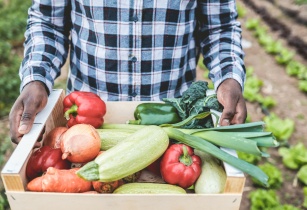The development of a Special Agro-Industrial Processing Zone (SAPZ) in Mauritius is the focus of a two-day technical workshop which is being held on on 16 and 17 February 2022
The objective of setting up of the SAPZ is to strengthen food security and reduce wastage of perishable agricultural produce. The workshop is being held at the Mauritius Cane Industry Authority in Réduit and was inaugurated in the presence of Attorney General, minister of Agro-Industry and Food Security, Maneesh Gobin.
In this context, a team of four officers of the African Development Bank (AfDB) is on a five-day visit to Mauritius since 14 February 2022.
In his address on the occasion, Gobin emphasised that the objectives of setting up of the SAPZ are to strengthen food security as well as to reduce wastage of perishable agricultural produce. These aims, he said, can be achieved through food processing which in turn will have the direct benefits of bringing forth diversification, enhance the income of farmers, reduce imports of processed food, and help the country save on currency. According to him, the SAPZ, being a dedicated zone for both logistical reasons and benefitting from fiscal measures, is poised to be a success.
The minister also spoke of the Mauritius Government’s policy to implement strategic reforms in three key fields of the agricultural sector, namely the sugar sector, the non-sugar sector, (NSS) and the tea sector. We have enlisted the participation of the World Bank for the sugar sector reform, the participation and technical assistance of the AfDB for the NSS, and the Food and Agriculture Organisation for the tea sector, he added. He further informed that all three reports have been submitted and a consultative process towards implementation has been initiated.
Gobin also deplored the country’s reliance on importation of processed food, and pointed out that 70,616 tonnes of vegetables, pulses, fruits, and nuts were imported in 2019, for a total sum of approximately US$57mn. These, he stressed, can be produced locally, which will help reduce our import bill, save on currency, and increase intra-Africa regional trade.
The AfDB has carried out an assessment of the NSS wherein one of the main recommendations was the setting up of a SAPZ in Mauritius in order to increase production and competitiveness of the NSS. The project would cost approximately US$10.29mn.
The establishment of a SAPZ will better help integrate Mauritius in the regional markets and leverage opportunities provided by inter-African trade. The SAPZ will also provide opportunity for Mauritius to promote sustainable development in line with sustainable development goals as well as climate smart agriculture as the main resource base, and focus Research and Development on the priority value chains and activities, thus allowing Mauritius to become a knowledge hub for technology and agro-industrial development.
